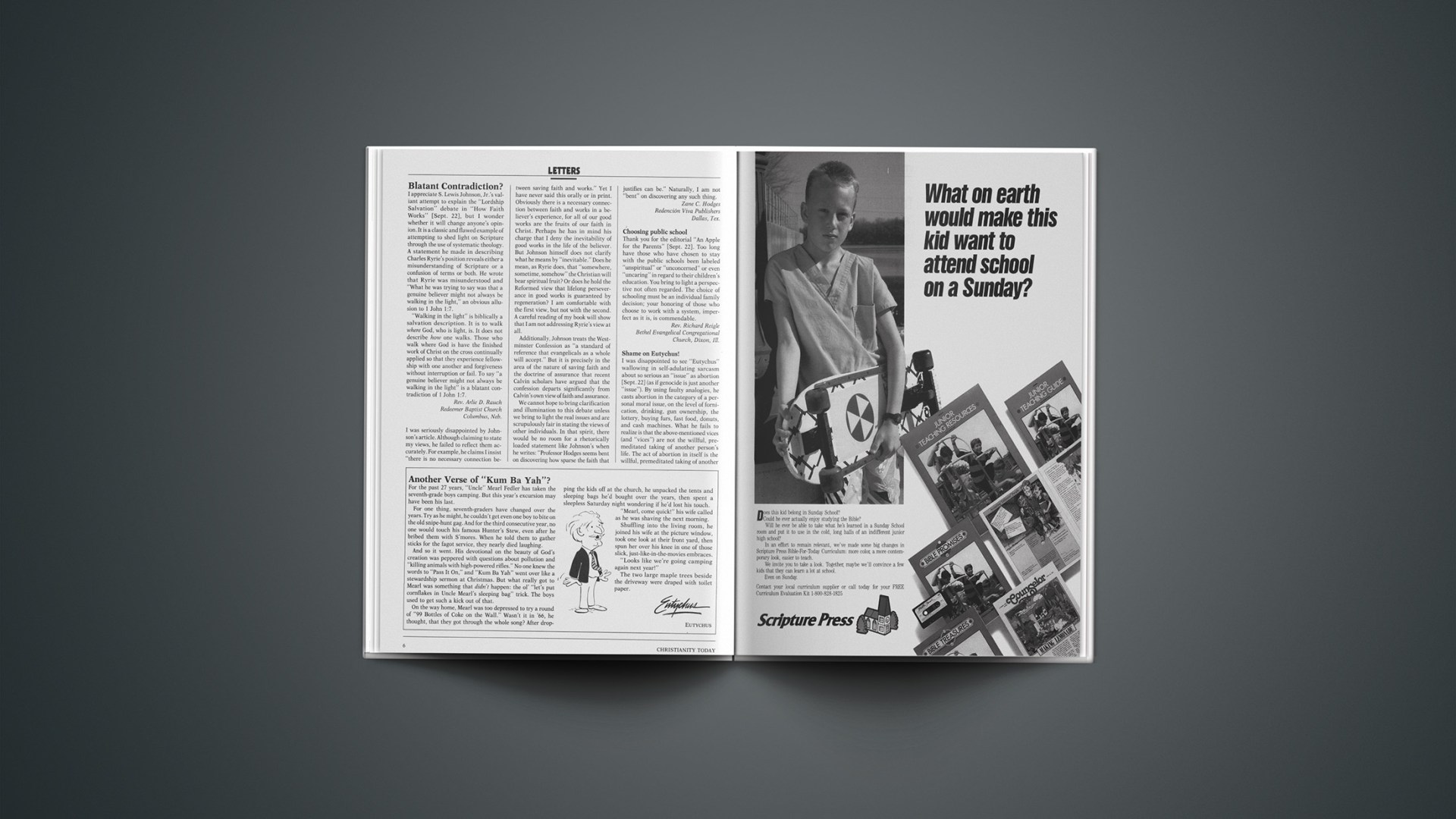On the first Sunday after Florida’s state lottery cranked up, several “scratch” tickets appeared in the offering plate at the church I attend. Knowing my convictions about Christians’ involvement in wagering schemes, a deacon hurried to me with the news.
“What do you think?” he asked with a grin.
“I’m not surprised,” I said. “All kinds of people are welcome in this church—even gamblers. But I’ve got a question for you.”
“What’s that?” He raised an eyebrow.
“Did you scratch the tickets to see if they were winners?” I asked him.
“Well, sure—wouldn’t you?”
Maybe I am an iconoclast, but I would not.
In 1987, Florida’s electorate did approve state-sponsored wagering by a 65 to 35 percent majority. But with numbers rackets still illegal in the state, some people consider gambling a threat to society. In most lottery states, numbers games and other forms of gambling are forbidden. Strangely, wagering is legitimized only when the state is the perpetrator—a confusing double standard for a society already inclined toward ethical disorientation.
But my answer is “no” for yet another reason. I would throw the tickets away because scratching—painful to admit though it may be—is prompted by greed. It is a capitulation to the concept of luck. God takes a stern view of idolatry because idols are symbols of a worshiper’s trust. As Christians, our trust, aspirations, and expectations are anchored in God, not Lady Luck or the goddess of chance.
Yet Christians—lots of them—purchase lottery tickets. Pollsters tell us that 77 percent of Presbyterians and Episcopalians and 63 percent of Methodists admit to at least occasional gambling. Forty-three percent of Baptists surveyed say they gamble, while 35 percent of the members of nondenominational groups—including conservative Bible churches—admit they do a little betting now and then. And with 26 states now sponsoring lotteries and more eyeing thirstily this seemingly bottomless well of cash, the purchase of one-dollar tickets has become the wager of choice for people enamored of easy money. But the term easy money may be a euphemism for greed. And greed is a form of idolatry.
Already, I fear, I can hear voices raised in protest. The lottery, idolatry? “The lottery is just a harmless pastime,” one earnest believer told me in defense of his weekly ten-dollar purchase of Lotto tickets. But, remember, I’m a self-confessed iconoclast—one who “smashes idols.” And what are idols but images or representations of that to which we turn in trust? Idolatry is not just bowing or chanting to a carved or painted replica of some deity. It is misplaced dependency—lusting or longing for anything other than God himself.
Yet, in the face of overwhelming odds, believers across the nation hand over multiplied millions of dollars each day in the purchase of lottery tickets. For each dollar won, two dollars inevitably are lost. Statisticians say lottery players are more likely to be eaten alive by piranhas than to hit the jackpot, but fantasies of wealth and abundance lure them on. The voice of idolatry and greed says, “You can never have enough.” In contrast, the voice of our sovereign God says, “Trust me and be content with what you have.”
Lotteries and their appeal to greed may be here to stay until the pendulum swings again in the direction of prudence and fiscal reality. But must Christians contribute to the confusion?
Your decision not to participate is not very likely to alter the destiny of your state’s lottery. It may, however, prove a giant step toward the personal spiritual maturity to which I will wager—no, better to say I am confident—you aspire.
By Tom Watson, Jr., author of Don’t Bet on It! (Regal), and a free-lance writer living in Miami Shores, Florida.
Speaking Out offers responsible Christians a forum for their views on contemporary issues. It does not necessarily reflect the opinions of CHRISTIANITY TODAY.










